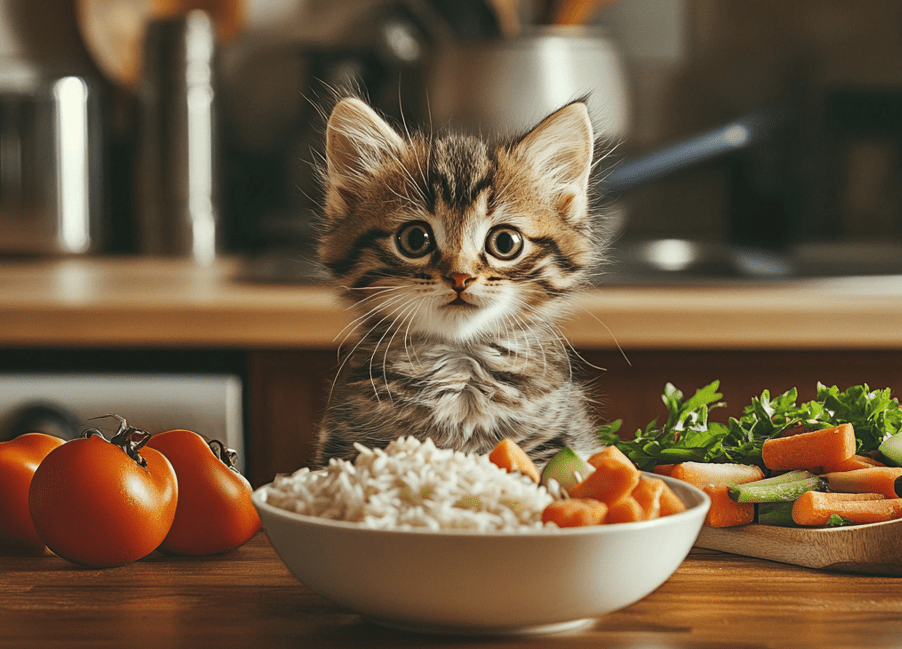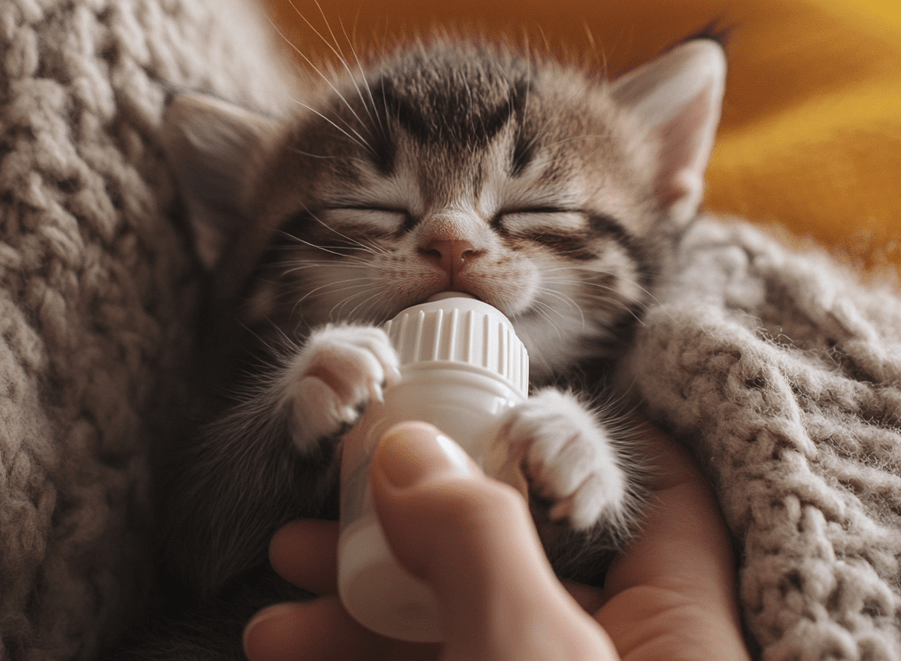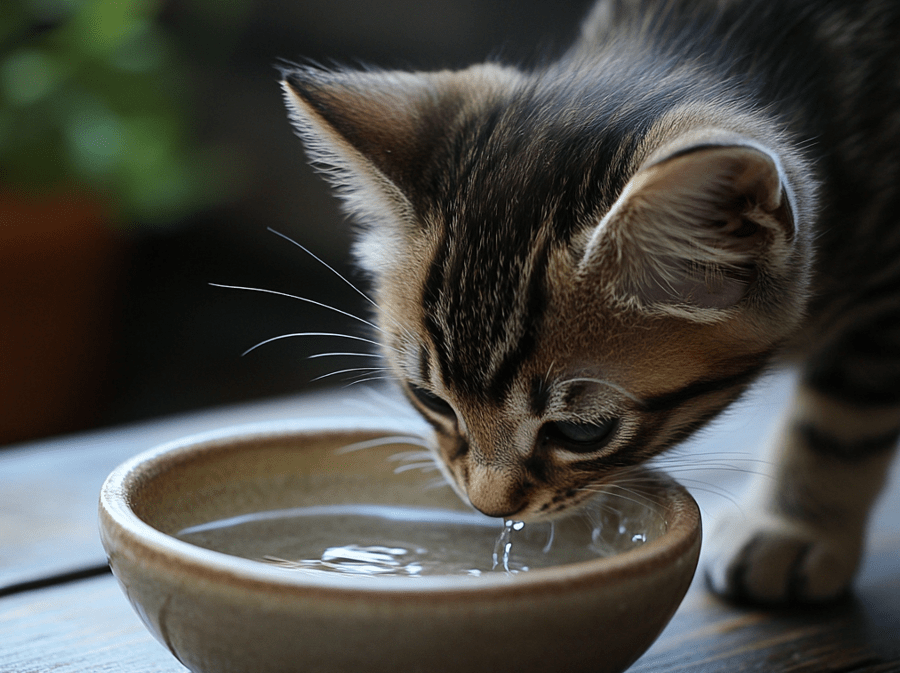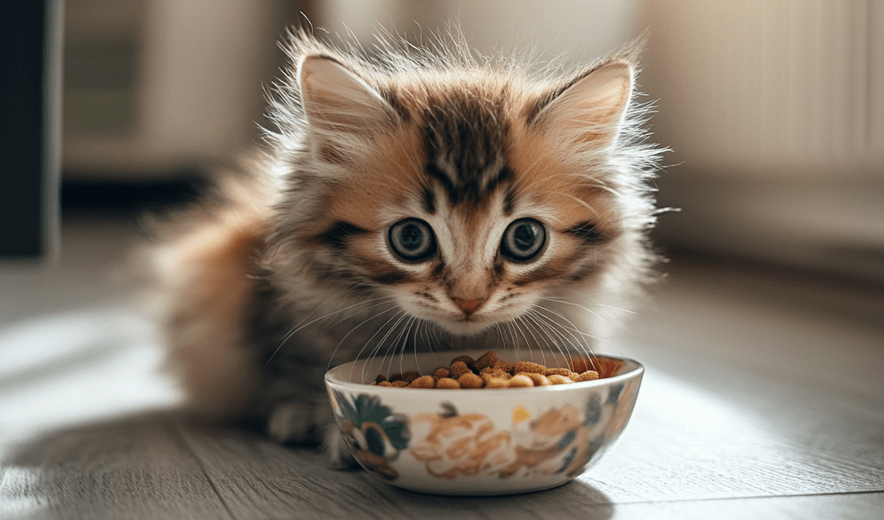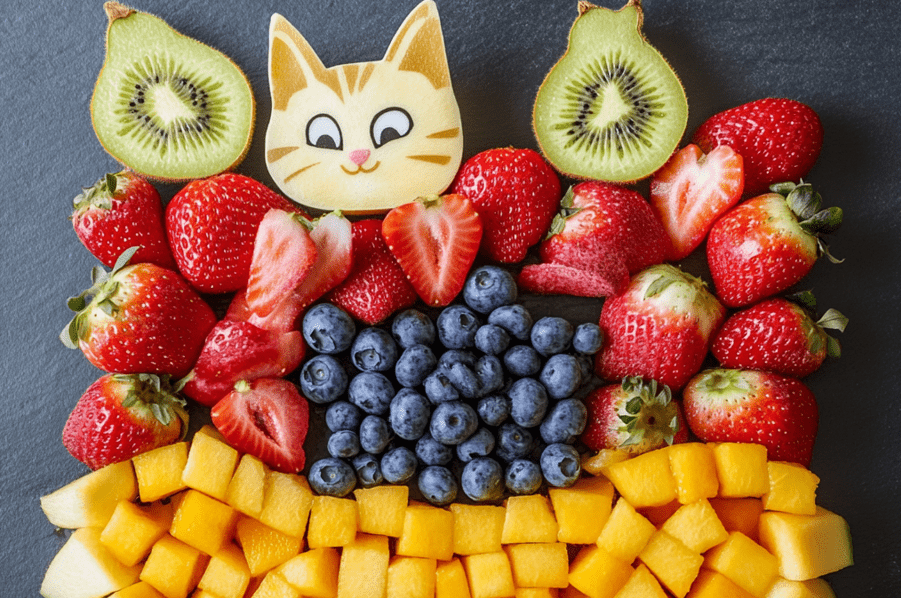
Cats are obligate carnivores and this simply means that they need meat to get all the nutrients required in their diet. They are not designed to be fueled on just plant matter. However, there are a few fruits that you can offer as a part time treat. Although many cats may not be interested in fruit because they cannot taste sweeteners, a few fruits can be used sparingly as an assortment to their diet as well or an occasional treat. Remember, moderation is the key because cats are obligate carnivores and their digestive systems are not designed to consume a lot of fruits.
Here are a few fruits that are safe for cats and a way to give fruit to your cat so as not to upset their delicate stomach.
To watch the summary of this article, just watch this video-
Can Cats Eat Bananas?
Yes, cats can eat bananas. Peas are an excellent source of essential nutrients including vitamins B6 and C, potassium, carbohydrates. These nutrients might help support overall health in small amounts, however, they are not as useful to cats as they do to humans. Cats will eat very tiny quantities so make it little bits and maybe some fresh or frozen chopped banana slices. Just keep in mind that affinity for bananas should not replace their standard meat-based diet.
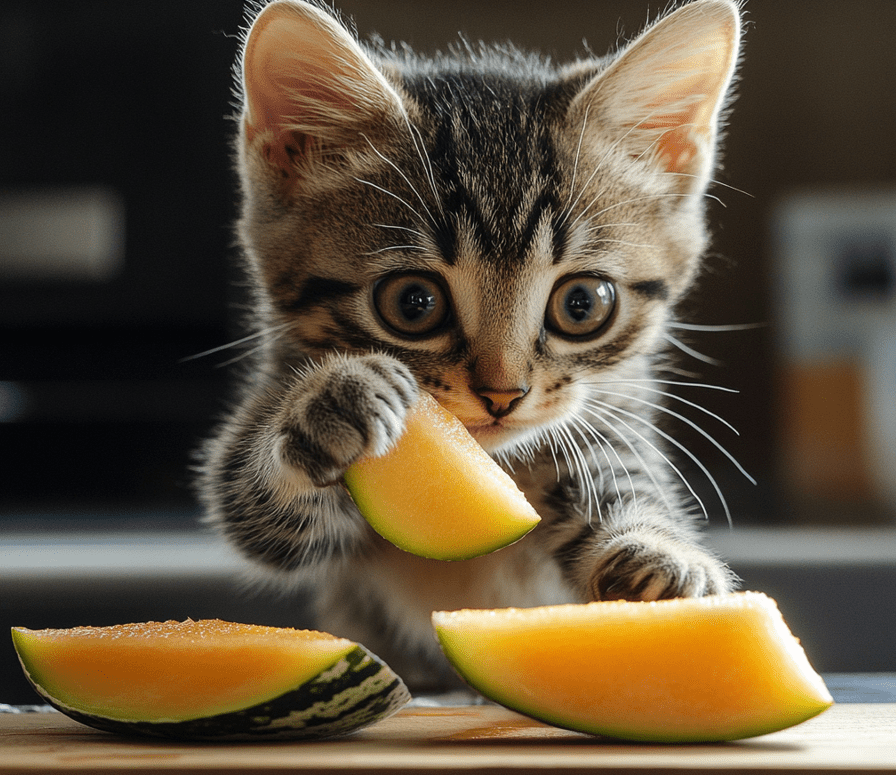
Can Cats Eat Watermelon?
Can Cats Eat Watermelon? In small amounts, yes watermelon is safe for cats to eat. Although they will love the red flesh of watermelon, make sure to cut up some pieces without any seeds or rind, and feed it occasionally. Seeds can be a choking hazard and cause gastrointestinal blockage, and rind which may result in stomach upset if consumed. Although the random white seed in a ¨seedless¨ watermelon is generally benign, it never hurts to pay attention. Watermelon provides hydration, which is not harmful (especially in hot weather) but once again: it makes a fine treat only infrequently
Can Cats Eat Strawberries?
Strawberries are safe for cats in moderation. Strawberries are a delicious and very healthy fruit that contains vitamin C, folate, potassium, manganese as well as antioxidants and fiber. Unfortunately, the nutritional advantages you get from a strawberry and are necessary for your cat are very far down that list of concerns because cats can eat so little before it begins to be unhealthy for them. To feed strawberries to your cat, be sure to wash them well and remove the stems and leaves then chop them up into small pieces. Strawberries are a refreshing, low-calorie snack occasionally, but cats do not get much from eating these nutrients.
These fruits are safe for cats in moderation, but this is important to realize that their primary nutritional necessities revolve around meat. View fruits as a supplement or a treat, but not as the foundation of their diet if they are any other non-meat food. As with any new food, make sure to add it into her diet very slowly and keep an eye on your kitty for any allergic reactions or digestive discomfort. If you are ever uncertain if something is safe or not, before feeding anything such as fruit to your little feline pal, please be sure to consult with your vet who can put things into better perspective in terms of what would be suitable for their overall diet.
Can Cats Eat Blueberries, Raspberries, Cranberries, and Blackberries?
Blueberries, blackberries, raspberries and cranberries also are safe for cats to eat. They are a great source of antioxidants, flavonoids, fiber and vitamins such as A, C, K and E but remember that to avoid choking in little ones the berries should ideally be cut into small pieces
Can Cats Eat Apples?
Yes, cats can eat apples. The flesh of apples contains calcium, vitamin K, and pectin in addition to the phytonutrients found on their skin. Apples are as beneficial to cats. The best practice with the apple is to give small slices or cubes preferably with the skin and no waste should be given like seeds, stems etc
Can Cats Eat Mangoes?
Mango, yes it can be sweet for the cats. Mangoes are good for their fiber, vitamin C, vitamin B6 and vitamin A content so small pieces of mango flesh can be given to cats as a treat but avoid the skin or seed
Can Cats Eat Pineapple?
Is Pineapple Safe For Cats To Eat? Pineapple is high in fruit sugars-fructose, and a great source of key vitamins (A, B6, folate), vitamin C and minerals (magnesium + potassium). I recommend using fresh pineapple if possible, rather than the stuff you can buy canned as it often will have added syrups and preservatives. Just be certain to prepare some rind and leave away as necessary before giving it to your feline.
Can Cats Eat Cantaloupe?
Certainly, your feline friends can eat cantaloupe which are full of vitamin C, beta carotene, fiber and antioxidants. Because the aroma of their flesh is supposedly similar to meat proteins, this makes tom cats partial to this low calories fruit. Serve the cantaloupe flesh in small cubes or slices and make sure to throw away the rind.
Can Cats Eat Fruit Snacks?
Cats should not eat fruit snacks. The high sugar content in these snacks (often trapped fruit juice without the fiber) is bad for cats
How Much Fruit Is Safe for a Cat to Eat?
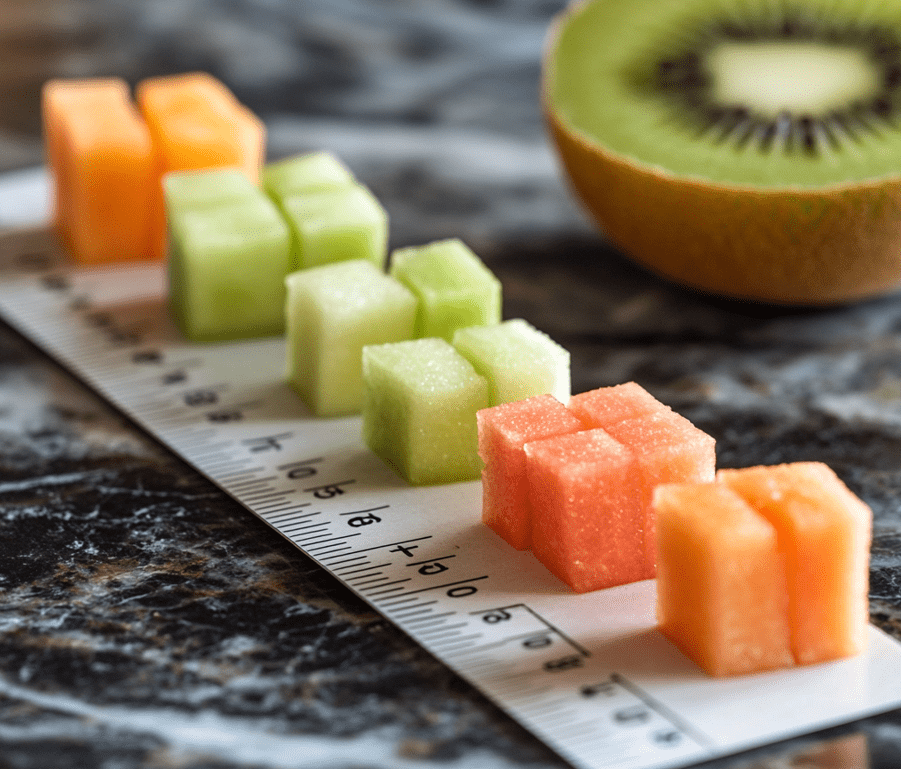
Fruits and other reward foods must be confined to 2 % of your cat’s diet, equating to a 1-inch part daily. Fruits may serve as a more beneficial solution for cat treats specifically involved in weight management. Serve fresh or frozen fruits in small pieces, separately from regular meals. Some cats may have a hard time digesting fruit, and this could result in stomach issues like vomiting, diarrhea or inability to poop. As fruit is a very sugary substance, it should be completely avoided by diabetic cats.
Fruits Safe for Cats
Some fruits are acceptable in small amounts for our feline loves. For the record, however, you should be removing seeds/stems/pits/rinds from everything beforehand!
1.Apricots (check first to make sure all seeds, stems and pits are removed)
2. Cucumber
3.Honeydew
4.Kiwi
5.Nectarines
6.Pumpkin (remove seeds and stringiness) Pears (remove seeds/stems/pits, like with apples)
Fruits Unsafe for Cats
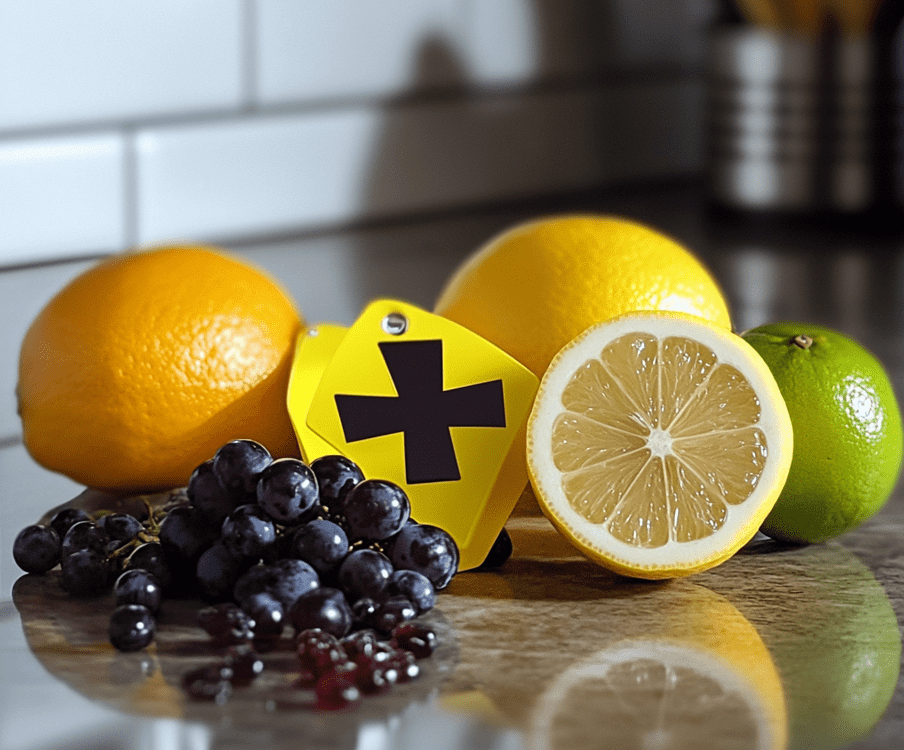
Grapes and Raisins: This actually initiates a dangerous chain reaction in your cat’s stomach which can result in vomiting, diarrhea, lethargy or in some cases severe enough to cause acute kidney failure.
Citrus Fruits, Lemons, Limes, and Oranges: Oils and compounds in citrus fruits might upset your pet’s stomach and lead to vomiting or diarrhea; some can affect his central nervous system in the correct dosages.
More Human Foods That Are Safe For Cats
The following foods are also okay for cats to eat as long as they are in moderation and do not contain seeds, stems, pits or skin and the larger of which should be cut into bite-sized pieces:
1.Artichokes
2.Asparagus
3.Beans
4.Broccoli
5.Cabbage
6.Whole peeled carrots cut into small pieces to avoid choking
7.Cauliflower
8.Celery — juiced (chopped, of course)
9.Coconut
10. Eggplant
11.Ginger
12.Green beans
13.Lettuce
14.Olives
15.Peas
16.Peppers
17.Pumpkin (seeds, stems, skin removed)
18.Sweet potato
19.Winter squash (seeded, with stem and rind removed)
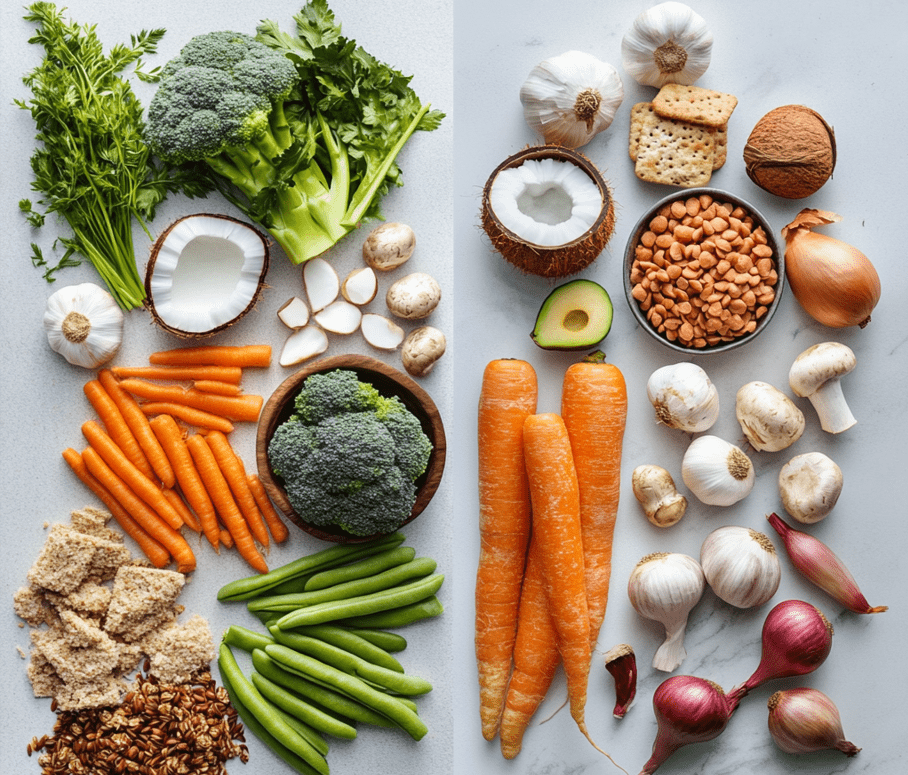
More Human Foods That Are Unsafe For Cats
1.Chives
2.Garlic
3.Green tomatoes
4. Leeks
5.Wild mushrooms
6.Onions
7.Rhubarb
8.Seeds, stems, pits, rinds and roots.

